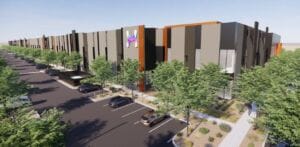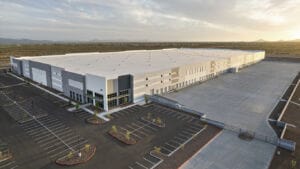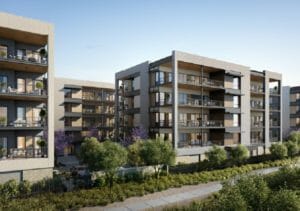State of Arizona
The Arizona Legislature is considering a measure to keep certain affordable housing rules from coming to Arizona via a statewide prohibition. Senate Bill 1072, a so-called “inclusionary zoning” ordinance being used in some other states, would ban cities from requiring developers to provide a certain percentage of new or refurbished
units for low-income or moderate-income housing. However, some existing affordable housing ordinances allow developers and/or builders
to pay fees to cities rather than meeting low-income housing quotas. The Arizona Multi-housing Association, among others, backs the ban, saying it not only discourages in-fill or rehabilitation projects but would technically impose price controls on a percentage of new housing. They also argue that Phoenix doesn’t have an affordable housing issue compared to other cities in the states that currently use these ordinances.
City of Scottsdale
The Scottsdale City Council voted to temporarily modify residential and commercial building permit fees within the Scottsdale McDowell Corridor. The fee schedule is proposed as a two-year program designed to spark reinvestment to economic activity. Fee modifications will automatically be applied to residential and commercial owners within corridor limits, without any paperwork required on the part of residents, the staff report states. Proposed modifications to residential building permit fees would not affect cost per square foot but would eliminate base fees, certificates of occupancy, GIS fees and cost for lowest floor certificate reviews. This would allow a homeowner to save 45 percent of building permit costs on a 1,000-square-foot addition. Similar changes to commercial building permit fees, as well as a reduction in application costs, will save business owners approximately 44 percent on a 1,000-square-foot addition.
South Mountain Freeway
Transportation funding has received final approval from the Federal Highway Administration, paving the way for the Arizona Department of Transportation (ADOT) to move forward with the Valley’s Loop 202 South Mountain Freeway, proposed by regional planners since the ‘80s. ADOT is also breaking new ground by moving it forward under a public-private partnership agreement to more closely involve the private sector, helping to save money and speed construction. The Record of Decision, signed March 5 by the Federal Highway Administration, grants the final approval necessary for ADOT to begin the process of acquiring right-of-way, complete the design and begin construction of the 22-mile-long freeway to serve Metro Phoenix. Acquisition of right-of-way is expected to begin immediately. The proposed freeway has been a critical part of the Maricopa Association of Governments’ Regional Freeway Program since it was first included in funding through Proposition 300, approved by Maricopa County voters in 1985. The freeway was also part of the Regional Transportation Plan funding passed by Maricopa County voters in 2004 through Proposition 400. The South Mountain Freeway is the last piece to complete the Loop 202 and Loop 101 freeway system. This corridor link of the freeway is proposed as running east and west along Pecos Road and then north and south between 55th and 63rd avenues, connecting with Interstate 10 on each end. The freeway will be constructed with four lanes in each direction — three general-use lanes and one HOV lane — and modern features that have made Arizona freeways stand apart from other states for a generation, including rubberized asphalt and aesthetics designed in partnership with the community. The $1.9B project is expected to take about four years to construct.




